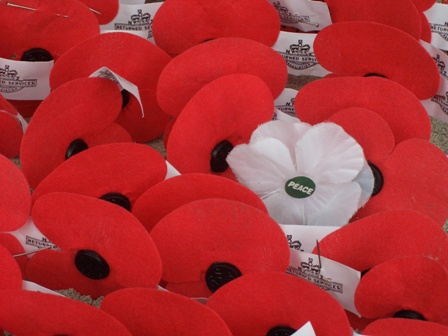queensland ANZAC service to honour female war veterans

The award-winning Coolum-Peregian RSL is calling for ex-service women to lead the ANZAC Day march to the Cenotaph on April 25. Reports suggest it is the first time such an honour has been bestowed on female service personnel. This year marks the 99th anniversary of the start of World War I. It is hoped that the call will encourage community recognition of the enduring presence of women in the defence forces.
Veteran Helen Christian, 93, is one of the women who volunteered to head up the dawn march. Christian was a driver in Britain in WWII, transporting Air Crew for Bomber Command. She had moved from Northern Ireland to England to serve.
RSL President Bill Powell said of the move: ‘We want to honour women who have served in all three defence services and it’s important that all of our ex-Service Women consider joining Helen to lead this year’s special march. Her message is – if she can do it; so can they.’
Close to 6000 locals are expected to attend the ceremony. Lack of recognition of women in the defence forces is an enduring problem in Australia.
A 2012 report on the health and wellbeing of female veterans from Vietnam onwards, headed by ANU research Dr Samantha Crompvoets, found that there is little support or even visibility for the cohorts within Australian society.
One of the main findings was a struggle for the recognition of “authenticity” felt by female veterans. This includes being questioned on the ownership of the veterans’ white healthcare card, and the implication that medals belong to a male relative, rather than the female veteran.
According to Crompvoets’ report, more women than men are likely to meet the criteria for Post-Traumatic Stress Disorder, while men are more likely to self-report on the PTSD symptoms. Sexual assault and harassment were found to be ‘common in all female cohorts since WWII’, but women who had been sexually assaulted were less likely to be diagnosed with PTSD.
Barriers to treatment services identified in the report include lack of knowledge about support available, limited gender-specific facilities for female veterans, and limited education for GPs on the needs of female veterans.
But according to some female service personnel, the problem of visibility and support is more systemic in the defence force culture.
Hannah Parker is a 30-year-old PTSD sufferer and ex-service woman. Deployed overseas three times in her ten-year stint in the defence force, she found that the navy was severely lacking in mental health support services.
Despite suffering severe depression and signs of PTSD on her first trip to the Gulf, Parker did not receive any support while on the ship.
‘If you’re injured or sick, you don’t talk about it, you don’t draw attention to it, because you don’t want to be the one seeing the medic.’
After a suicide attempt, Parker was deemed unfit for service.
‘A lot of people suffering from depression would keep quiet. The conditions attached spell the end of your career.’
She was not even able to work at the aircraft control school.
‘I went over to explain, and they said, “We’ve heard what’s happened, you won’t be working here.”’
Parker left the Navy in 2008 and has been seeking treatment for her depression and PTSD. She echoes Crompvoets’ findings on the lack of specialised support for female veterans. She noted that the support is targeted at older veterans, and ‘even the literature is aimed at the men. The majority of it is aimed at the Army … you never hear about the female angle’.
Crompvoets concludes that female veterans are a group who need health services that understand their complete needs, with well-informed health care providers. Furthermore, social support is a critical element of a successful reintegration into society for female veterans.
Visibility is critical to the community support and treatment of female service personnel. Hopefully such support will be bolstered by actions like those at the Coolum-Peregian RSL this ANZAC Day.
Free, confidential counselling and support is available from the Veterans and Veterans Families Counselling Service for Australian veterans, peacekeepers and their family members. VVCS can be contacted 24 hours a day on 1800 011 046. For non-military help or information visit beyondblue.org.au, call Lifeline on 131 114 or visit this page for a detailed list of support services.

